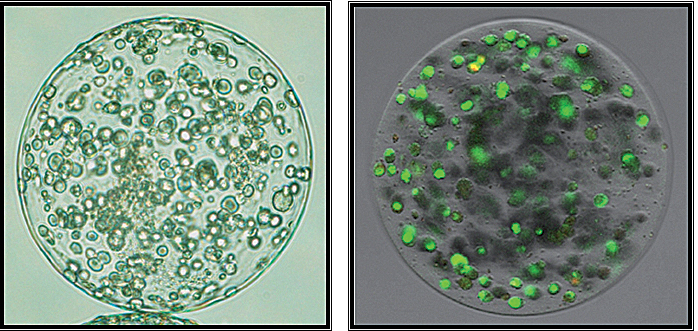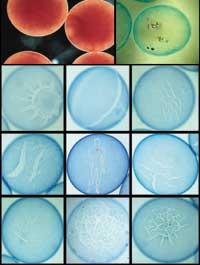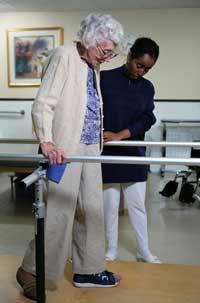UPV-EHU develops a plentiful method of animal cells in humans
2011/09/01 Elhuyar Zientzia Iturria: Elhuyar aldizkaria

To prevent animal cell transplantation from producing immune rejection in humans, UPV biochemistry Ainhoa Murua has developed a method based on cell microencapsulation.
In the Faculty of Pharmacy of the UPV/EHU investigate the possibility of transplanting cells (xenotransplants) from other species to humans to treat chronic diseases such as parkinson, alzheimer, anemia, etc. This would help combat the shortage of human tissue for transplants.
In particular, they have opted for cell microencapsulation and, in this field, Murua has made contributions in his doctoral thesis to alleviate treatments against immune rejection. "To avoid rejections it is necessary to follow an immunosuppression protocol that can cause side effects. We wanted to set aside this protocol. By encapsulation we keep these foreign cells separate from the body. However, some signals can cross the membrane of the capsule," explains the researcher. Therefore, Murua is investigating the incorporation of microcapsules containing immunosuppressive anti-inflammatory agents along with these microencapsulated cells for their progressive release into the patient's body. "I want to ensure that, instead of injecting immunosuppressants every day, these anti-inflammatory capsules can forget treatment for a year," he added.

Gai honi buruzko eduki gehiago
Elhuyarrek garatutako teknologia





